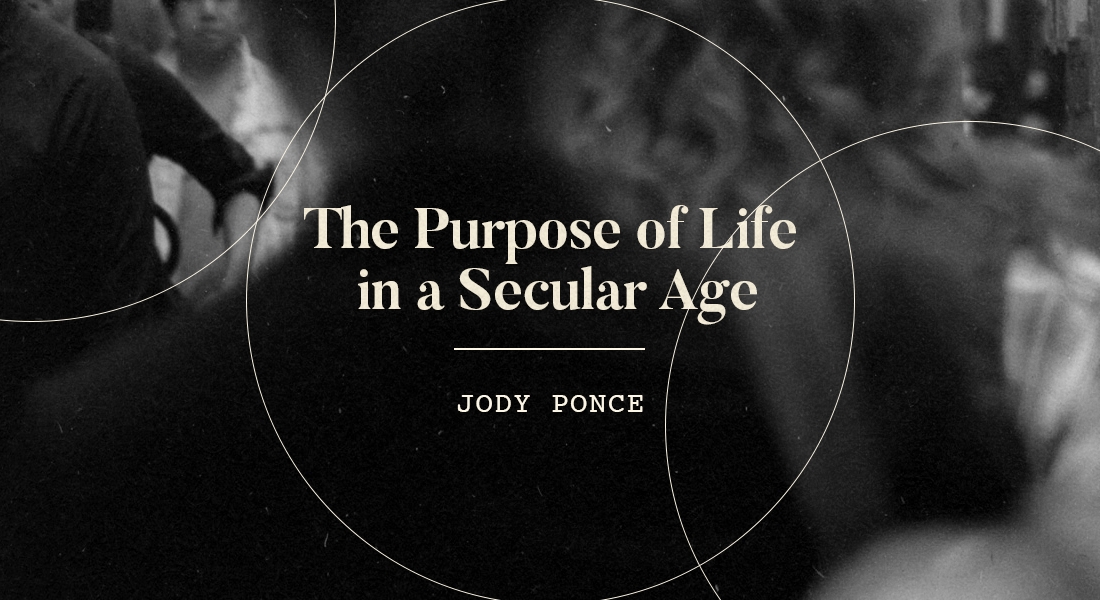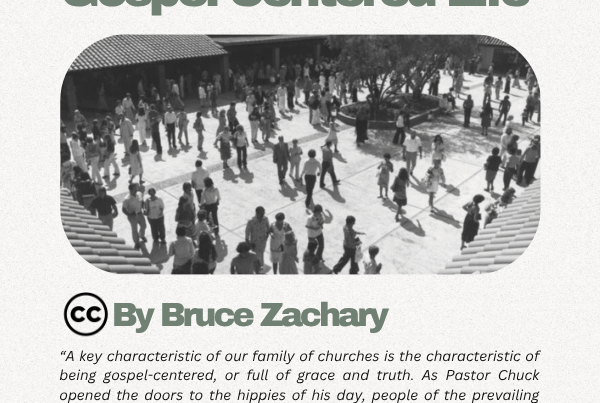
There is a question that lurks at the back of our minds, niggling, scratching, attempting to penetrate our consciousness. We keep it at bay with busyness, distractions, vanity, and ambition, but it still scratches. The question is this: What is the purpose of life? What is the point of it all? What will remain of me when I take my last breath? That is the question that has scratched at the brain of every thinking person from the start.
Albert Camus wrote about the character of Sisyphus, who is found in Greek mythology. He was condemned to roll a stone up a hill until he was ten paces from the top, and then let it roll back down again only to roll it up again and repeat ad infinitum.
Life sometimes feels this way: eat, sleep, work, repeat. What is the point? Bertrand Russell said we are nothing more than an “accidental collocation of atoms destined to end in the heat death of the universe.” He went on to say, “Only on the firm foundation of unyielding despair, can the soul’s habitation henceforth be safely built.”
Dawkins said we live in a universe of “blind, pitiless indifference.”
If human beings are here by a biological accident, then what is the meaning of life?
Do we live and breathe and die all for nothing? Is there any arc to our story? Or is it a plotless existence that simply happens and then ends?
Many of the great thinkers of history have embraced this idea of material meaninglessness. Steven J. Gould argues that we must “construct our own meaning,” but what gives our “construct” any meaning? Who determines it? By what standards do we measure whether or not we have been successful?
If God is not a reality, then we can be our own master. We can do as we please. We can construct our own meaning. But without God, none of it means anything; life has no ultimate purpose. Our “freedom” becomes utterly meaningless.
Aldous Huxley said very honestly:
“I had motives for not wanting the world to have a meaning; and consequently, assumed that it had none, and was able without any difficulty to find satisfying reasons for this assumption. The philosopher who finds no meaning in the world is not concerned exclusively with a problem in pure metaphysics. He is also concerned to prove that there is no valid reason why he personally should not do as he wants to do. For myself, as no doubt for most of my friends, the philosophy of meaninglessness was essentially an instrument of liberation from a certain system of morality. We objected to the morality because it interfered with our sexual freedom. The supporters of this system claimed that it embodied the meaning – the Christian meaning, they insisted – of the world. There was one admirably simple method of confuting these people and justifying ourselves in our erotic revolt: we would deny that the world had any meaning whatever.”
This is an interesting and honest quote. To be a free, moral agent, we must remove God, but if we remove God, we lose our life’s meaning and purpose. Here Huxley acknowledges that total human, moral freedom comes only when we “deny that the world has any meaning whatever.” This is a high price to pay, and we are seeing the consequences of it throughout our world today. The void of meaninglessness is eating at people’s souls.
Anxiety is at an all-time high in the West, as we leave young people to face the void alone.
The temporary distractions of our imminent frame – social media, Netflix, pornography – can only temporarily keep the abyss at bay. In reality, in the face of eternity, we need God standing with us.
Albert Camus argued that, “If my freedom has no meaning except in relation to its limited fate, then I must say that what counts is not the best living but the most living. It is not up to me to wonder if this is vulgar or revolting, elegant or deplorable. Once and for all, value judgments are discarded here in favour of factual judgments.” According to Camus, because nothing matters, we should spend our lives in pursuit of pleasure. In a meaningless universe, we are free to do this, and ultimately, the only thing worth anything is the quantity of pleasure we experience.
The French Poet Beaudalaire rigorously pursued hedonism in great “quantity.” However, his friends would recall that he experienced a persistent twitch: images of his pursuits involuntarily flashed before his mind, tormenting him. Perhaps you have had this same experience on occasion: unbidden flashes of your pursuits of pleasure, or images from an incognito internet tab, passing before your eyes.
It would seem then that, yes, we can have moral freedom, but we must give up any meaning our lives might hold to attain it. And, as Baudelaire (and I, for that matter) will testify, even having the moral freedom to do as we please can lead to more torment than pleasure.
The truth is, we were created for a purpose.
As trains are designed to move along their tracks, we are designed to move along the tracks of God’s will for our lives. His purpose stretches out ahead of us, curving and winding, climbing and descending according to his will, his good and perfect will. To step into our purpose, we must agree to travel on his track (Philippians 2:13). We “lose” our moral freedom as we submit our will to God the creator, but we gain meaning, purpose, and eternal life. We learn quickly that his good standard brings joy and peace into our lives, and that his “law of liberty” (James 2:12) is what brings true freedom, the freedom to be who we were created to be.
When Jesus was praying in the Garden of Gethsemane on the night before the crucifixion, he prayed, “If possible, let this cup pass from me, yet not my will but yours be done” (Matthew 26:39). We serve a God who loves us so much that he submitted his will, his freedom, and his pleasure to the Father. He did that, all the way to the cross, all the way into death, for you and me. He did it because of his eternal love for us.
When we think about the reason to keep going every day, we must remember the love of Christ for us; that his death frees us from death and imbues our life with eternal purpose.
Speaking as one who tried it, being the master of your own life isn’t all it’s cracked up to be. However, it is possible to hand over the reins to God today. The God of love, who gave up everything for you, is waiting for you. He waits for you to come to him, and in him, find life eternal.
What is the purpose of life? God created us to know him, to know his voice (John 10:27-28). He gave up his power and glory; he came to earth, lived as a man, died, and rose again, all so that we could be close to him. He wants us to hear his voice. It is so difficult to make our way through the unstable ever-shifting world we live in, but when we choose to follow God, we have access to His mind and his voice, as he guides us faithfully day by day.
“The Lord sits enthroned over the flood; the Lord is enthroned as King forever. The Lord gives strength to his people; the Lord blesses his people with peace” (Psalm 29:10-13).
Yes, life can feel like a flood. I have often felt as if I were drowning; even the world around me appears to be drowning. But we have a God who sits enthroned above the storm. He wants to speak to you; he wants to guide you; he wants to fill every day of your life with his touch and his presence (James 4:8).
Knowing that the God of the universe is guiding your life makes everything you experience eternally significant.
R.C. Sproul wrote, “Everything that we experience, every pain we endure and every tear that we shed is significant – forever.” This is what gives our lives meaning. No suffering is unseen; no pain passed over; God is working everything for our good eternally (Romans 8:28).
Because God is real, because he is personal, that means “what happens in history matters” (Charles Taylor). It all matters to God, and he wastes none of it.
The Lord is speaking; his word is as alive today in our secular age as it has ever been. As he guides our days and directs our paths, we see his will and plans unfold; we see how God and only God can turn the good, the bad, and the ugly parts of our lives into something beautiful as he uses them for his good purposes. It is God’s hand on our lives, his involvement, that fills our life with purpose.
Bibliography
Camus, Albert, Justin O’Brien. The Myth Of Sisyphus, And Other Essays. New York: Vintage Books, 1991.
Huxley, Aldous. Ends and Means. London: Chatto & Windus, 1937.
Russell, Bertrand. A Free Man’s Worship, and Other Essays, London: Unwin Books, 1976.
(Stephen J. Gould quote) Kinnier, Richard, Jerry Kernes, and Nancy Tribbensee, eds. The Meaning of Life: According to the Great and the Good. Palazzo Editions, 2007, P. 108.
Dawkins, R. River Out of Eden: A Darwinian View of Life. New York, NY: Basic Books, 1995.
Sproul, R. C. Surprised by Suffering (Robert Charles), 1939-2017.
Taylor, C. A secular age. New York: Walker, Harvard 18th ed., 2007.









